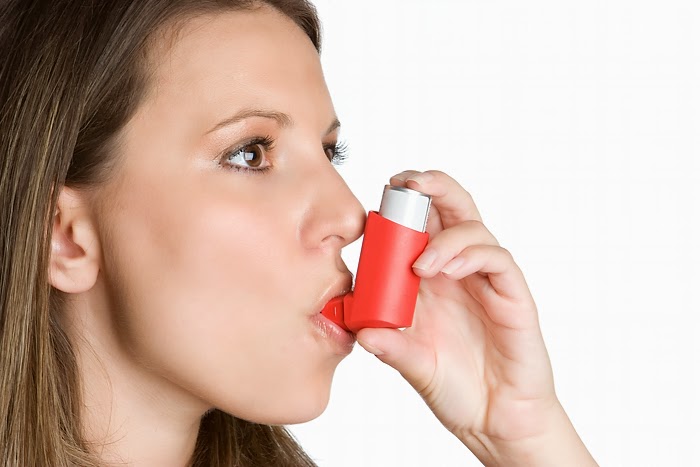Asthma is responsible for thousands of hospital admissions
worldwide, the majority of which are emergency admissions.
How would
you know is it an asthma attack?
You can tell you're having an asthma attack:
1. If your
inhaler isn't helping you.
2. If you have
to keep using your reliever inhaler as the effect wears off quickly.
3. If your
symptoms are getting worse.
4. If you're
too breathless to speak, eat or sleep.
Often, using your reliever inhaler will be enough to relieve your
symptoms when you start having an attack. Sometimes, symptoms are more severe
and urgent action is needed.
What to do?
For children and adults having asthma attacks are to:
1. Take your
reliever inhaler (usually blue) straight away and try to breathe deeply and
steadily.
2. Sit down and
loosen any tight clothing.
3. If your
symptoms haven't improved after five minutes, or you're worried, call ambulance
or see a doctor/medical help urgently.
4. Continue to
take a puff of your reliever inhaler every minute until help/ ambulance arrives
Role of
family & friends in this situation!
It’s vital that friends and family know how to help in this
situation. This includes helping the person having the attack to sit up
comfortably, talking to them to calm them, helping them to use their reliever
treatment, and calling for help/ambulance if their condition doesn't improve at
all.
How to
prevent attacks?
Most people who have asthma attacks will have warning signs for a
few days before the attack. These include:
1. Having to
use your reliever inhaler more often;
2. Changes in
your peak flow meter readings,
3. And
increased symptoms, such as waking up in the night.
Don't ignore these above warning signs, as they indicate that your
asthma control is poor and you risk having a severe attack. Follow your
personal asthma action plan. If your symptoms continue to get worse, make an
urgent appointment to see your doctor.
Never be
frightened of calling for help in an emergency.
What to do after
an attack?
If you've had an attack, arrange to see your doctor, the dose of
your preventive treatment may need to be adjusted.
Source: Dr. Imtiaz Syed, M.B,B.S, MBA, CRA, PCQI, CPC
Source: Dr. Imtiaz Syed, M.B,B.S, MBA, CRA, PCQI, CPC











0 comments:
Post a Comment